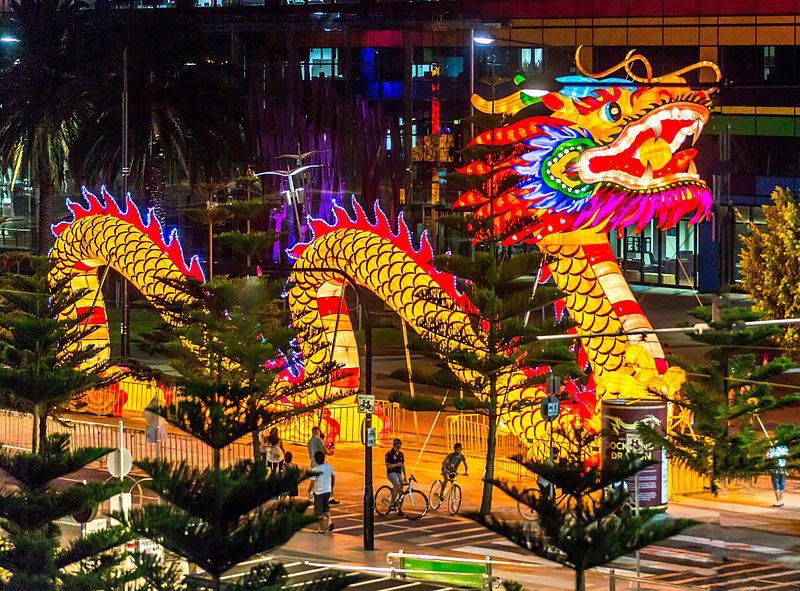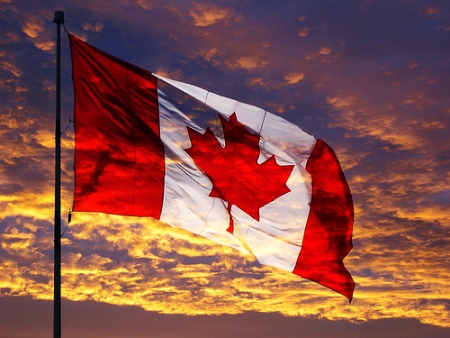Historically Canadians have been perpetually worried that the elephant, as in the United States of America, will decide to roll over one day and crush us. However, the dragon across the Pacific Ocean should be of greater concern to Canadians, especially given the current Federal government’s renewed interest in it. China has always attempted to gain influence and favour with certain politicians and industry leaders in Canada. Recently the communist state has begun to pursue these interests even more fervently.
China’s covert involvement in the Canadian political and business community has been occurring for many years now. In 2011, Mississauga Member of Parliament (MP) Bob Dechert found himself in trouble for sending flirtatious emails to Chinese journalist Shi Rong. At the time Mr. Dechert was Parliamentary Assistant to the Minister of Foreign Affairs and Ms. Shi was the Toronto bureau chief for Xinhua News Agency.
Mr. Dechert claimed that the emails were part of an “innocent friendship.” However, Li Fengzhi, a former intelligence officer for China’s Minsitry of State Security, believed that Ms. Shi had ulterior motives. Ms. Fengzhi told the Globe and Mail that Beijing places spies in Chinese news agencies, such as Xinhua, with the expressed goal of gleaning information from high level politicians in Canada.
Canadian security experts have also been attempting to warn the general public about Canada’s vulnerability to Chinese espionage. Now retired Canadian Security Intelligence Service (CSIS) Chief Richard Fadden warned that hostile foreign powers and alien non-state actors were trying to influence our politicians and businessmen. In a 2010 CBC interview Mr. Fadden said; “a number of countries take the view that if they can develop influence with people relatively early in their careers, they will follow them through, and all of a sudden they are a politician or a public servant who exercises some influence. They [foreign states] can really have an impact.” China appears to be pursuing this tactic with Canada’s current Prime Minister Justin Trudeau.
This past fall Prime Minister Trudeau was under intense scrutiny for attending a cash-for-access fundraiser at the home of a wealthy Chinese-Canadian business executive. Many of those who attended paid $1,500 per person to have dinner and have unfettered access to Canada’s Prime Minister.
This fundraiser in May 2016 is troubling because many people in attendance had direct ties to the Communist Party of China. Chinese businessmen Zhang Bain was in attendance, but did not pay to attend the fundraiser, because as a foreign citizen he is unable to under election financing laws. Mr. Zhang is a political adviser to the Chinese government, and after attending the exclusive fundraiser he donated $1 million to the Pierre Elliot Trudeau Foundation and the University of Montreal Faculty of Law. This is a similar tactic that some foreign governments have recently pursued in the United States.
The Clinton Foundation, founded in 2001 by former US President Bill Clinton, came under scrutiny for accepting donations from foreign countries. During Hilary Clinton’s term as Secretary of State, the Clinton Foundation accepted money from countries such as Algeria, Kuwait, Qatar and Oman. This was a major concern of some Democratic organizers, because these donations gave the appearance of foreign interference in domestic matters. In Canada, the recent generosity of Chinese nationals to the Trudeau Foundation and the political donations to the Liberal Party of Canada by Chinese-Canadians may be an investment in the future, and it could be argued it has already begun to pay dividends.
The Trudeau government recently cancelled a cabinet order from the previous Conservative government, which prevented the Hong Kong based O-Net Communications from taking over Montreal based ITF Technologies. Former Prime Minister Stephen Harper was concerned that O-Net, which is partly owned by Chinese state-owned China Electronics Corporation, would gain access to the research ITF Technologies did for the Ministry of National Defence. One project ITF Technologies worked on was quantum cryptography, which attempts to produce coded messages that are impossible to crack.
The current Liberal government has not provided any substantive reason for the reversal of this cabinet order. The fact that this reversal occurred following the recent meetings and fundraisers with Chinese officials raises questions concerning Canada’s national security, at a time when NATO is placing a greater focus on cyber security.
Cyber security is an increasing concern for many NATO member states. In March this past year, more than 300 participants and teams from 17 nations participated in NATO cyber attack game “Locked Shields.” The sheer size of this military exercise demonstrates the importance the Trans-Atlantic alliance has placed on being prepared for a large scale military cyber attack.
Photo: Chinese New Year Dragon (2014), by Johntorcasio via Wikimedia. Licensed under CC BY-SA 4.0
Disclaimer: Any views or opinions expressed in articles are solely those of the authors and do not necessarily represent the views of the NATO Association of Canada.




